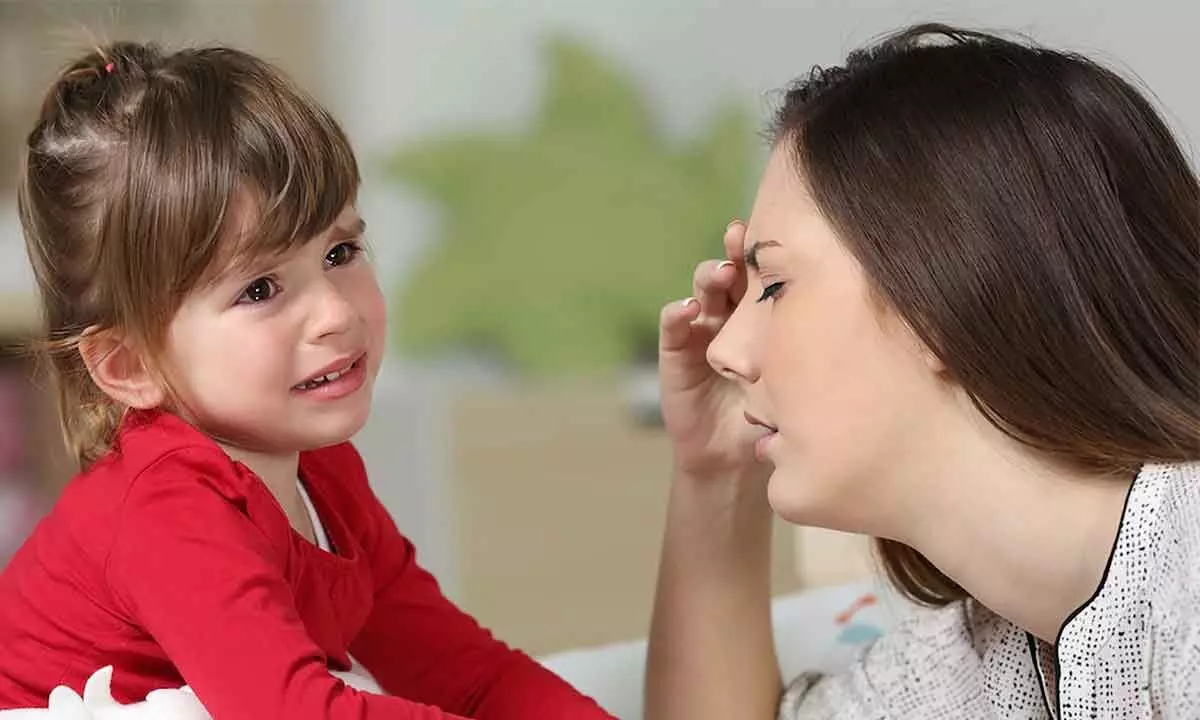Understanding Childhood Trauma: A Guide on How Parents Can Provide Support

Every year on October 17th, World Trauma Day is marked to increase public awareness of the effects of trauma on both children and adults. A child’s physical, emotional, and cognitive development can be significantly impacted by childhood trauma, which is a complicated and pervasive problem. Before the age of 18, one in three Indian youngsters is thought to have experienced trauma of some kind. This might involve being the victim of or witnessing physical, sexual, emotional, or neglectful abuse.
In India, childhood trauma is incredibly common. A report by the National Council for Child Protection found that 53% of Indian children have been subjected to physical or sexual abuse in some way. A World Health Organization survey also revealed that 28% of Indian youngsters have experienced emotional abuse.
Types of childhood trauma
♦ Emotional trauma: This can result from verbal abuse, bullying, or rejection.
♦ Physical abuse: Mishaps, or illnesses can all cause physical damage.
♦ Sexual trauma: This can be caused by sexual assault, sexual exploitation, or exposure to pornographic media.
♦ Neglect: Physical, emotional, or educational neglect are all examples of this.
Recognising Signs of Trauma in Children Behavioural changes
♦ Regression: They might start acting in ways that would be more fitting for a younger child, including urinating in the bed or throwing temper tantrums.
♦ Aggression: They might act more violently or aggressively.
♦ Withdrawal: They could retreat and cut off contact with others.
Emotional changes
♦ Anxiety: Even in non-dangerous settings, they may experience anxiety or terror.
♦ Depression: They may experience sadness or hopelessness.
♦ Extreme mood swings: People could experience sudden changes in their emotions, going from being pleased to unhappy or furious.
Physical symptoms
♦ Sleep disturbances: They may experience issues getting to sleep or staying asleep.
♦ Appetite changes: They might eat more or less than usual.
♦ Unexplained aches and pains: They may experience unexplainable headaches, stomach aches, or other bodily aches and pains.
The risk of untreated childhood trauma
♦ Increased risk of mental health problems: Children who suffer trauma are more prone to face mental health issues such as anxiety, sadness, and post-traumatic stress disorder (PTSD).
♦ Risk of physical health issues rising: Children who experience trauma are also more susceptible to physical health issues like diabetes, heart disease, and stroke.
♦ Academic challenges: Traumatized children may have trouble focusing in class and may do poorly academically.
♦Relationship issues: Traumatized children may have trouble establishing and sustaining wholesome relationships.
♦ Addiction to drugs or alcohol: Children who endure trauma are more likely to abuse these substances.
How Parents Can Help Children Cope with Trauma
1. Open communication - One of the most crucial things parents can do to assist their child in overcoming trauma is to establish a secure environment for conversation and support the youngster in expressing their feelings. Inform your kid that it’s acceptable to feel terrified, mad, sad, or bewildered. Encourage them to recognise and name their feelings and to find constructive ways to express them.
2. Getting expert assistance - If your child is having trouble coping with trauma, getting professional assistance is crucial. Your child can get the support and direction they need from a therapist or counsellor to help them heal. They can also assist you in learning parenting techniques and coping mechanisms so you can support your child at home.
3. Building resilience - Being resilient means having the capacity to overcome challenges. In order for your child to overcome the difficulties brought on by trauma, it is crucial to assist them in developing resilience. You can do a lot of things to help your kid develop resilience, like:
♦ Educating them on coping mechanisms: Give your child effective coping mechanisms for stress and challenging emotions, such as deep breathing, problem-solving approaches, and encouraging self-talk.
♦ Promoting healthy habits: Set up consistent schedules for your child, such as those for meals, bedtimes, and playtime. They’ll feel more secure and safe as a result of this.
l Fostering a sense of safety and confidence: Tell your child you adore them and are always available to them. Make their home a secure and encouraging place for them.
(The writer is an, Program Director - Paediatrics, Aster Hospitals, Bangalore & Lead Consultant - Paediatrics & Paediatric Intensive Care, Aster CMI Hospital, Bangalore)








